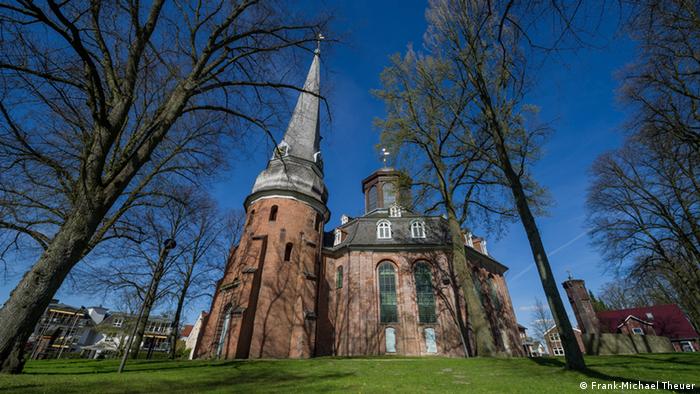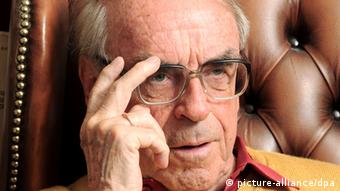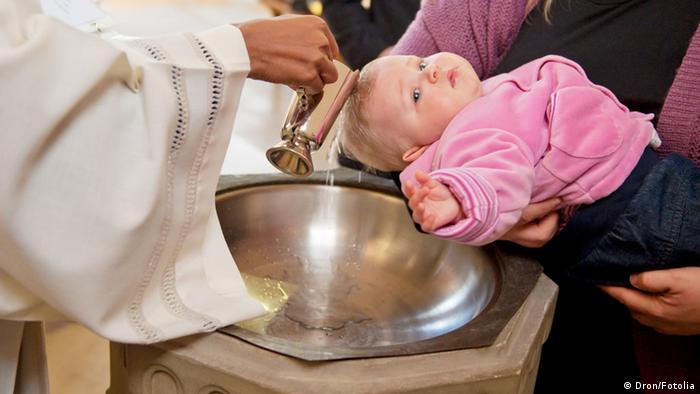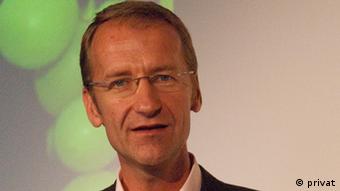Welcome
....to JusticeGhana Group

JusticeGhana is a Non-Governmental [and-not-for- profit] Organization (NGO) with a strong belief in Justice, Security and Progress....” More Details
Germany's state churches seek survival strategies
- Details
- Parent Category: Africa and The World
- Category: The World
- Created on Wednesday, 20 August 2014 00:00
- Hits: 6294
 Germany's state churches seek survival strategies
Germany's state churches seek survival strategies
Germany's traditional state churches see that they need to make changes if they want to stop shrinking. Some are looking to the non-state churches for inspiration with practices like small group Bible studies.
At the age of 88, emeritus theology professor Jürgen Moltmann never grows tired of thinking about the future of Germany's Protestant Church. "I was a minister in a traditional Protestant parish in Bremen for five years and saw the church from the perspective of the pulpit. But for the past 50 years ago, I've been a layman and, since then, I look at the church from the perspective of the churchgoers. It is that perspective from below that I try to impart to the bishops and other clergymen who look at it from above."
For Moltmann, that means that the Protestant Church needs to increasingly distance itself from the state. In Germany, there are two state-affiliated churches: Protestant and Catholic. The German government collects their funding with a special tax and administers it to the two churches. In addition, there are a large number of free churches representing a variety of Protestant denominations. These churches are responsible for funding themselves through donations from their congregations.
In a multicultural society, Moltmann told DW, the state-affiliated churches no longer represent the people and must "stand on their own two feet" if they want to survive.
Ritual versus faith
 Independence from the state, however, can't happen without stronger participation from believers, says Moltmann, who is convinced that voluntary involvement is indeed growing. "I think that we will get a voluntary church - and that's a good thing." That means the end of big churches with tightly structured hierarchies and the advent of parishes that are run by their own members.
Independence from the state, however, can't happen without stronger participation from believers, says Moltmann, who is convinced that voluntary involvement is indeed growing. "I think that we will get a voluntary church - and that's a good thing." That means the end of big churches with tightly structured hierarchies and the advent of parishes that are run by their own members.
While the model of independent, grass-roots churches is wide-spread in the United States - where mega churches like Willow Creek boast attendance numbers of over 20,000 per week - non-state-affiliated churches have been few and far between in Germany.
Nevertheless, Germany's non-state churches have always been based on the concept of voluntariness. Baptism is one example. State churches usually baptize infants, accepting scores of members before they can talk, let alone read the Bible themselves or drop a few coins in the collection basket. Free churches, on the other hand, tend to practice adult baptism, which means membership is a conscious decision.
Ansgar Hörsting, president of the Association of Protestant Free Churches (VEF), explains that in this way only people who are authentically convinced of their religious beliefs become members.
"In practice, you find a greater percentage of people who truly believe in Christ in our church than in the state churches," asserts Hörsting. "And that has a very positive effect on their involvement in church work."

Greater commitment from church members
At present, the Association of Protestant Free Churches incorporates 14 free churches with roughly 270,000 members. According to Hörsting, it is not a disadvantage that they rely on financial support from churchgoers, but rather a positive challenge.
"We want to remain in dialogue with our members; we want to have to ask them for contributions and have to make an effort to convince them to invest in the work of the church," says Hörsting.
This commitment is reflected in the attendance of church services, he adds. "If a parish consists of 300 members, then all 300 members usually attend church services."
Importance of sub-groups
 The bigger the parishes are, the more important it is to form smaller sub-groups, says Hörsting. These, for example, can be small home groups of around a dozen people people who meet to study the Bible and pray together. He says that groups like these can strengthen personal faith and enhance the quality of community life.
The bigger the parishes are, the more important it is to form smaller sub-groups, says Hörsting. These, for example, can be small home groups of around a dozen people people who meet to study the Bible and pray together. He says that groups like these can strengthen personal faith and enhance the quality of community life.
Jürgen Moltmann agrees that home groups could also help the big, state churches find new members - and keep them. Evangelization, he adds, is "not a dictatorship, but an invitation."
Moltmann has spent time in South Korea learning about the small home churches there. "Germany's churches tend to have quite a strong clergy, but their weak point is missionary work," he concludes.
"What we were able to learn from the Korean churches is that parishes should become more active in missionary work and in inviting people to church. However, that invitation should not come from missionaries but by church members."
Moltmann would even go a step further. "These home groups could even take over some of the functions of church services," like helping people understand Biblical texts and ministering when members have special needs.
Restructuring churches from below
Mission, growth and change - in achieving these goals, Moltmann sees the local parishes as more relevant that the church hierarchies. And that's nothing new: Back in the 19th century, he says, churches carried out their missionary work not from above but through private organizations and communities. "I hope to see in the future that Christian communities and projects are once again founded through private initiatives."
Germany's non-state-affiliated churches are already working along these lines. So far, they have not suffered the dramatic decrease in attendance that the state churches have - and yet, not all of these free churches are growing.
On average, membership numbers for the free churches that are part of the VEF are stagnating, reports VEF-President Hörsting. On the other hand, numerous free churches not associated with the VEF are growing: in particular, charismatic Pentecostal communities; Mennonite communities made up of ethnic Germans from Russia; and small, independent home churches made up of no more than a dozen.
Moltmann speculates that it will take at least half a century for the state-affiliated churches to adopt some of the free-church principles. But, he adds, that "the story of God has always been full of surprises. Those who don't dare to hope for what seems impossible will never encounter it."
Date 19.08.2014
Author Klaus Krämer / ad
Editor Kate Müser
Source: Deutsche Welle




